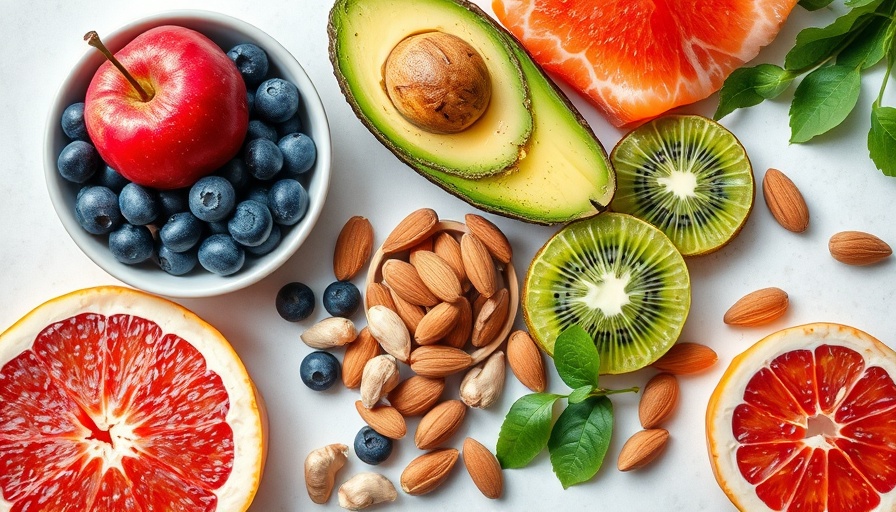
The Connection Between Diet and Fertility: An Overview
When embarking on the journey towards parenthood, many individuals consider various factors affecting fertility. Increasingly, there’s a focus on how diet and certain foods can play a pivotal role in enhancing fertility. This article delves into the science surrounding fertility diets, specifically for those with conditions like Polycystic Ovary Syndrome (PCOS), and how food choices can impact reproductive health.
Understanding Fertility Diets: What Are They?
A fertility diet typically emphasizes the consumption of whole foods rich in nutrients that are beneficial for reproductive health. These diets often encourage the intake of fruits, vegetables, whole grains, healthy fats, and lean proteins, while minimizing processed foods and sugar. According to nutritional experts, such diets can help regulate hormones and improve insulin sensitivity—critical elements for individuals struggling with conditions such as PCOS.
Key Nutrients for Enhancing Fertility
Research shows that certain nutrients can significantly influence fertility. Here are some crucial components recommended by nutritionists:
- Folic Acid: Essential for DNA synthesis and cell division, adequate folic acid is critical for reproductive health. Foods rich in this vitamin include leafy greens, beans, and fortified cereals.
- Omega-3 Fatty Acids: Found in fish like salmon and chia seeds, omega-3s can help reduce inflammation and support hormonal balance.
- Vitamin D: This vitamin is linked to improved fertility and can be obtained through sunlight exposure and foods like fortified dairy products.
A Personal Touch: Real Stories and Anecdotes
For many, the journey toward understanding how diet affects fertility can be a deeply personal one. Take Sarah, a 30-year-old woman diagnosed with PCOS. After struggling with fertility issues, she consulted a nutritionist who guided her toward a fertility-focused diet. Within a few months of incorporating more whole foods and eliminating processed ones, Sarah noticed significant changes in her body’s response and even her cycle regularity.
Counterarguments: Nutritional Perspectives and Skepticism
While the narrative surrounding fertility diets is compelling, it’s essential to consider counterarguments as well. Some experts argue that while nutrition plays a role, it's not the only factor determining fertility. Substantial stress, lifestyle choices, and genetic predispositions also contribute significantly to reproductive health. Thus, a multifaceted approach that includes medical advice and lifestyle changes might be more effective than dietary changes alone.
The Mental and Emotional Impact of Diet on Fertility
For many, the emotional journey of trying to conceive can be rife with anxiety and uncertainty. A focus on nutrition can not only improve physical health but can also provide a sense of control and empowerment. Eating nourishing foods can boost overall well-being, thereby positively influencing mental health during the conception journey.
Modern Trends: Integrative Approaches to Healthcare
As the health and wellness sector evolves, integrative medicine is gaining popularity. More practitioners are recognizing the importance of combining traditional medical practices with alternative approaches, such as nutritional counseling. In cities like San Antonio, health and wellness businesses are emerging that specialize in holistic approaches to fertility and reproductive health, providing community support in this sensitive journey.
Moving Forward: Tips for a Fertility-Friendly Diet
Ready to explore dietary changes that could boost your fertility? Here are a few actionable tips to consider:
- Focus on whole, unprocessed foods.
- Include a variety of colorful fruits and vegetables in your meals.
- Incorporate healthy fats into your diet, such as avocados and nuts.
- Stay hydrated and limit sugary drinks.
With these simple yet impactful changes, you can take proactive steps toward enhancing your reproductive health.
Conclusion: Taking Charge of Your Health
Whether you're looking to conceive now or in the future, understanding the relationship between diet and fertility can empower you to make informed choices. A well-rounded approach that includes healthy eating habits, stress management, and regular medical check-ups is key to supporting your reproductive goals. Embrace the journey, and remember that every healthy choice brings you one step closer to the family you envision.
 Add Row
Add Row  Add
Add 




 Add Row
Add Row  Add
Add 


Write A Comment